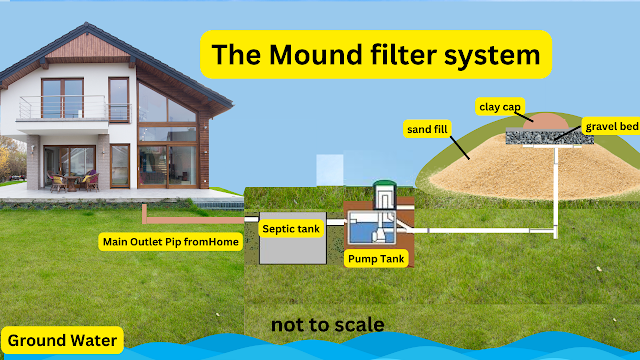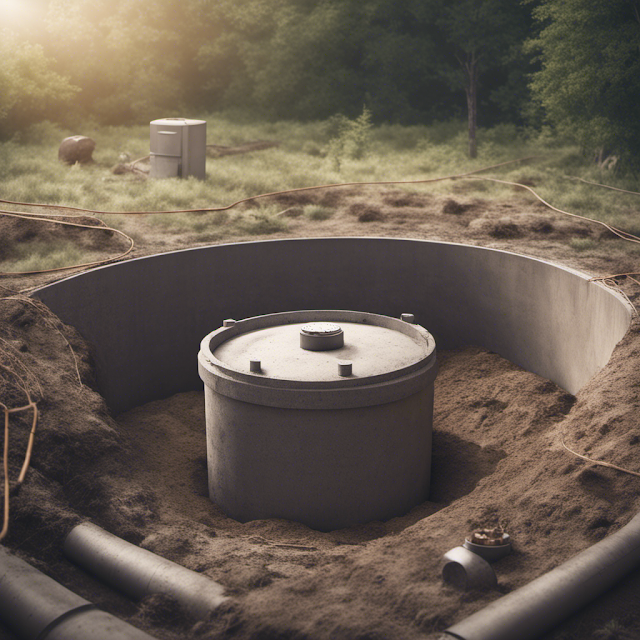A Heartbreaking Reminder: The Dangers of Septic Gas and the Loss of Two Lives
 |
| Septic Gas Danger |
The Septic gas Article
In a devastating incident in Pune city's Wagholi area, two laborers lost their lives due to suspected asphyxiation while working in a drainage chamber-cum-septic tank on Friday. According to the police, the tragic event unfolded at a housing society, with a third worker feared trapped inside the tank. This chilling episode serves as a stark reminder of the perils associated with septic tanks and the deadly gases they contain.
The victims were working in an 18-foot-deep drainage-cum-septic tank when they seemingly succumbed to suffocation and became trapped. An official from the Pune Metropolitan Region Development Authority's (PMRDA) fire brigade department informed PTI that they received a call about the incident at approximately 7 am. Upon arriving at the scene, they managed to retrieve the bodies of the two deceased workers.
Septic tanks, a common method for wastewater treatment in areas lacking centralized sewage systems, are known to harbor hazardous gases. Among these, hydrogen sulfide and methane stand out as the most dangerous. Hydrogen sulfide is a toxic gas with a characteristic rotten egg smell, while methane is an odorless, flammable gas. When present in high concentrations, these gases can lead to fatal accidents, as evidenced by the recent tragedy in Pune.
 |
| Atom Model of hydrogen sulfide |
The dangers of septic tanks are manifold, and the risk of asphyxiation is one of the most critical concerns. When workers enter a septic tank without proper safety equipment or ventilation, they may be exposed to high levels of toxic gases. Inhaling these gases can rapidly deplete oxygen levels in the blood, leading to unconsciousness, respiratory failure, and, ultimately, death.
Jeane and Michael Sadler Comment's
As a seasoned septic tank journalist with over four decades of experience as an owner, operator, and writer on the subject, it is with a heavy heart that I share the tragic story of two workers who lost their lives in a septic tank incident. This devastating event is a stark reminder of the dangers that septic gas can pose if not properly managed and respected. In response to this tragedy, my wife and I have decided to dedicate ourselves to raising awareness about septic tank gas, septic gas smell, and septic tank smell in house dangers, as well as other associated risks.
The untimely deaths of these two men could have been prevented if proper safety measures and precautions had been followed. It is crucial that homeowners and septic tank operators are aware of the potential dangers of septic systems, especially when it comes to the hazards posed by septic gas. In light of this tragedy, we are releasing a comprehensive article titled "The Invisible Threat: Septic Gas and Its Impact on Health and Safety in Residential Settings." This article aims to educate homeowners and septic tank operators about the risks associated with septic systems and provide information on how to prevent similar accidents from occurring in the future.
Septic tanks are an essential solution for many living in rural and remote locations, providing a practical means of managing wastewater. However, they are not without risks. One of the most significant hazards is septic gas, a byproduct of the decomposition of organic material within the tank. This gas can accumulate inside the tank and, if not properly vented, can leak into the surrounding environment, including the home. Septic gas can be harmful or even fatal if inhaled in high concentrations. Common symptoms of exposure to septic gas include headaches, dizziness, nausea, and respiratory irritation.
Septic Gas Smell
A septic gas smell in a house is often the first indication that something is amiss. This odor can be caused by a variety of issues, ranging from a simple clogged vent to a more severe problem such as a leak in the septic system. If you detect a septic gas smell in your house, it is essential to take immediate action to identify and rectify the issue. Ignoring this warning sign could lead to dangerous and even life-threatening consequences.
Not only is a septic tank smell in the house unpleasant, but it can also be dangerous. Prolonged exposure to septic gas can lead to severe health complications, including respiratory distress, brain damage, and even death. It is vital that homeowners are aware of these dangers and take appropriate steps to mitigate the risks associated with septic systems. This includes proper installation, regular maintenance, and timely repairs.
Septic Gas and other Dangers
In our upcoming article, "The Invisible Threat: Septic Gas and Its Impact on Health and Safety in Residential Settings," we delve deeper into the potential hazards of septic systems and provide detailed information on how to protect yourself and your loved ones from these dangers. The article covers topics such as proper septic tank installation, the importance of regular inspections and maintenance, and the signs of a failing septic system. We also discuss the various types of septic gases, their potential health impacts, and measures that can be taken to minimize exposure.
It is our hope that this article will serve as a valuable resource for homeowners, septic tank operators, and anyone living or working near a septic system. We want to ensure that everyone has access to the information necessary to prevent future tragedies like the one that claimed the lives of two workers.
As we mourn the loss of these individuals, let us remember that their deaths were not in vain. Their tragic passing serves as a sobering reminder of the dangers associated with septic systems and the importance of proper management and awareness. By educating ourselves and others about the risks of septic gas and implementing the necessary precautions, we can help prevent similar incidents from occurring in the future. It is our responsibility as homeowners, septic tank operators, and community members to prioritize safety and protect the well-being of ourselves and those around us.
In addition to the more in-depth information provided in our upcoming article, there are several simple yet essential steps that can be taken to minimize the risks associated with septic gas:
Ensure that your septic system is properly installed and vented. This will allow septic gases to escape safely and prevent them from accumulating in and around your home.
Schedule regular septic system inspections and maintenance. A professional can identify potential issues early on, allowing you to address them before they become dangerous.
Monitor your septic system for signs of trouble, such as slow drains, gurgling sounds, or a persistent septic gas smell in your house. These could indicate a problem that requires immediate attention.
Educate yourself and your family about the dangers of septic gas and the importance of promptly addressing any issues that arise. The more knowledgeable you are, the better equipped you will be to protect yourself and your loved ones.
Keep the area around your septic tank and drain field clear of debris, vegetation, and other obstructions. This will help ensure proper ventilation and minimize the risk of septic gas buildup.
Install carbon monoxide and methane detectors in your home, as these gases can be present in septic gas. These devices can provide an early warning if dangerous levels of gas are present in your home.
Our hearts go out to the families of the two workers who lost their lives in this tragic septic tank incident. It is a sorrowful reminder of the very real dangers that can be associated with septic systems when proper precautions are not taken. As a septic tank journalist with over 40 years of experience in the industry, I am committed to raising awareness about these risks and helping homeowners and septic tank operators take the necessary steps to ensure the safety of their properties and the well-being of all who reside in and around them.
Conclusion
In conclusion, while septic systems provide an essential service for many living in rural and remote areas, they also come with inherent dangers that must be acknowledged and addressed. By educating ourselves about septic gas and its potential impact on health and safety, and by taking the appropriate preventative measures, we can work together to minimize the risks associated with septic tanks and create safer living environments for ourselves and our communities.
Research and Fact Check:
.png)



.png)






Comments
Post a Comment